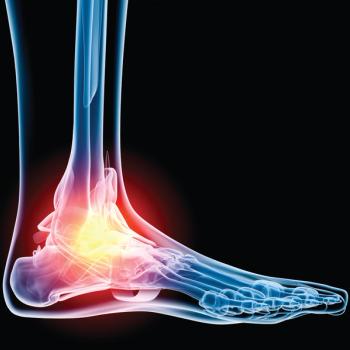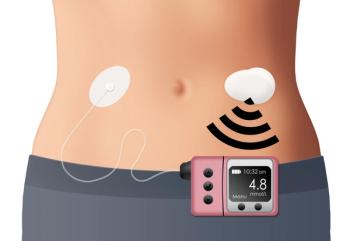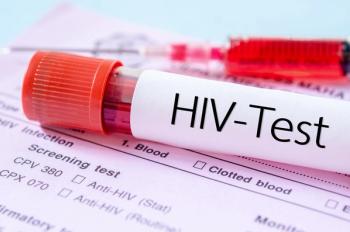
Women with type 1 diabetes (T1D) had a better cardiometabolic risk factor profile but did not have a significantly lower cardiovascular disease (CVD) event burden compared with their male counterparts.

Hayden is an associate editor for The American Journal of Managed Care® (AJMC®). She joined the AJMC team in 2021, where she produces written and video content covering multiple disease states.
She has a BA in journalism & media studies from Rutgers University. You can connect with Hayden on LinkedIn.

Women with type 1 diabetes (T1D) had a better cardiometabolic risk factor profile but did not have a significantly lower cardiovascular disease (CVD) event burden compared with their male counterparts.

Young men who have sex with men (YMSM) said the treatment’s efficacy was the most important feature injectable HIV pre-exposure prophylaxis (PrEP), over side effects, cost, protection duration, and delivery method.

A review of 6 studies on treatment options for hepatic encephalopathy found that many require further research before they can be recommended.

A digital pet app used as a prescription digital therapeutic (PDT) to encourage children to complete prescribed therapies received high engagement and function scores from children living with neurodevelopmental disabilities.

Machine learning models collected using a crowdsourcing approach that provide feasible, quick, and accurate methods to quantify joint damage in rheumatoid arthritis (RA) could potentially be incorporated into electronic health records.

David E. Koren, PharmD, MPH, BCPS, AAHIVP, FIDSA, infectious disease clinical pharmacist at Temple University Hospital, speaks on gaps in monkeypox vaccine availability and access and steps to improve response to the public health emergency.

A highly tailored video doctor intervention was shown to help men living with HIV achieve viral suppression, and younger and older patients achieve HIV care retention.

People with type 1 diabetes (T1D) who partake in fasting during Ramadan may benefit from using an advanced hybrid closed loop (AHCL) insulin pump system.

The 1-year gap after the end of the Oncology Care Model (OCM) means some practices have to make hard decisions regarding cost of care or the financial health of the practice, explained Lalan Wilfong, MD, vice president of Payer Relations & Practice Transformation at The US Oncology Network.

People with advanced HIV initiating bictegravir/emtricitabine/tenofovir alafenamide (B/F/TAF) were more likely to reach CD4 cell count levels of 200 cells/mcL or higher compared with those initiating other antiretroviral therapy (ART) regimens.

Hatim Husain, MD, associate professor in the Department of Medicine at UC San Diego, discuses must-haves for successful biomarker testing in lung cancer—in particular, non–small cell lung cancer (NSCLC)—and how the field is adapting to the targeted treatment needs of its patients.

Wearing a physical activity tracker and receiving personalized exercise feedback was linked to better results in exercise performance, weight loss, and other health outcomes among individuals with obesity.

Investigators conducted a review of 21 studies on the effects of a gum disease treatment on various rheumatoid arthritis (RA) disease activity measures.

Patient confidentiality is a major reason why minors do not seek out prevention, testing, and treatment services for sexually transmitted infections (STIs) and HIV.

Use of prototype app UpSilent resulted in clinically meaningful changes in tinnitus and superior outcomes across most measures after 12 weeks compared with popular app White Noise.

Juvenile idiopathic arthritis (JIA) disease flare was significantly longer in children with enthesitis-related arthritis and juvenile psoriatic arthritis treated with secukinumab compared with placebo.

Black and Latinx transgender women expressed high levels of HIV risk perception at the individual and community level, both of which played major roles in their decision to start and continue pre-exposure prophylaxis (PrEP).

The guidance focuses on treatment with tecovirimat, pre-exposure prophylaxis and postexposure prophylaxis with the Jynneos monkeypox vaccine, and infection control among persons living with HIV (PLWH).

A study found cystatin C, renal resistance index, and urinary kidney injury molecule-1 were significantly associated with risk of diabetic kidney disease (DKD) in children and adolescents with type 1 diabetes (T1D).

Children whose parents were more engaged with an intervention focused on obesity saw greater results compared with children whose parents were less engaged.

While past research suggests patients with rheumatoid arthritis (RA) are at increased risk for dementia, a Mayo Clinic study claims this is not the case.

Researchers found automated foot strike detection is viable for smartphone-based fall risk classification in patients with lower limb amputations.

Value management, theranostics, clinical trial access, and a mobile pharmacy are major innovations being integrated into independent community oncology practices, as highlighted at the Quality Cancer Care Alliance Summer 2022 National Leadership Summit.

After 2 years of follow-up, more than a quarter of patients who used a digital therapeutic delivering cognitive behavioral therapy for insomnia achieved insomnia remission.

The summary includes expanded indications for certain vaccines, approaches for live-attenuated vaccines, and medication management around the time of vaccination for patients with rheumatic and musculoskeletal diseases (RMDs).

According to the review, the most important novel developments were related to the repositioning of old drugs in the context of treat-to-target (T2T) therapy and new long-term safety information on Janus kinase (JAK) inhibitors.

The National Health Service (NHS) in England has made the Dexcom ONE real-time Continuous Glucose Monitoring System available by prescription to patients with type 1 diabetes (T1D).

Researchers developed a framework to pull high-resolution digital phenotypes from wearable devices and use them to predict the risk of cardiometabolic disease.

New study findings show suboptimal HIV and sexually transmitted infection (STI) testing rates among sexual and gender minority individuals in the state, contrary to CDC guidelines.

Patients with gout who experienced a heart attack or stroke were twice as likely to have experienced a gout flare within the past 60 days compared with patients with gout who did not experience either event.

259 Prospect Plains Rd, Bldg H
Cranbury, NJ 08512
© 2025 MJH Life Sciences®
All rights reserved.
